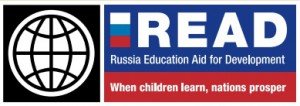
School Education Quality Assessment Project (SEQAP) aims at helping developing countries that have insufficient capacity of experts to master use of the assessment technologies through development and adaptation of tools. The developed technology becomes country’s own. It then can be used by state authorities and school administration for educational assessment in the situation where large-scale international comparative research is not conducted.

The initiative is operated by the Center for International Cooperation in Education Development (CICED) in partnership with Russian Center for Formative Assessment (RCFA) and National Foundation for International Development Aid (NFID). It is being managed under the agreements between CICED and organizations participating in the project from four countries: Armenia, Belarus, Kyrgyzstan and Tajikistan. The SEQAP is a partnership that formed under the READ Program when CICED introduced promising tools for education quality assessment that could be adapted and used in a different cultural context and language.
Project goals
-
Promoting tools for education quality assessment at a school level to encourage its use among specialists working in schools (teachers, school administration, curriculum specialists) through distant training, seminars and workshops
-
Developing, localizing and adapting modern methodologies and tools for education quality assessment in the different cultural contexts and languages
-
Sharing knowledge on importance of the regular education quality assessment
-
Strengthening regional cooperation of specialists from developing countries working on improvement of the education quality.
Project stages
SEQAP Assessment tools
School Education Quality Assessment Project and Sustainable Development Agenda
Project SEQAP is created in frames of Russia’s contribution to implementation of the Sustainable Development Agenda. The project SEQAP is aimed at achievement of the following targets of SDG 4:
4.1 By 2030, ensure that all girls and boys complete free, equitable and quality primary and secondary education leading to relevant and effective learning outcomes
4C By 2030, substantially increase the supply of qualified teachers, including through international cooperation for teacher training in developing countries, especially least developed countries and small island developing States

and the target of the SDG 17:
17.6 Enhance North-South, South-South and triangular regional and international cooperation on and access to science, technology and innovation and enhance knowledge sharing on mutually agreed terms, including through improved coordination among existing mechanisms, in particular at the United Nations level, and through a global technology facilitation mechanism








